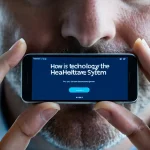Overview of Technology’s Role in the UK Healthcare System
The integration of healthcare technology UK into the National Health Service (NHS) is increasingly central to delivering efficient patient care. The NHS digital transformation is a strategic priority designed to modernize services and improve access through advanced tools. Government initiatives focus on embedding digital solutions across care pathways, reflecting the rising importance of health tech advancements in managing resources and patient outcomes.
Efforts include scaling electronic records, remote monitoring, and online consultation platforms to enhance convenience and accessibility. These technologies support quicker diagnoses, reduced administrative burdens, and safer patient data handling, aligning with wider health system goals. Additionally, digital health plays a growing role in empowering patients to engage actively in their care through apps and portals, fostering better communication between clinicians and patients.
Also read : What are the trends in UK technology startups?
The NHS digital transformation strategy outlines clear milestones for adoption and integration, targeting a more connected, data-driven health ecosystem. As health tech advancements continue to evolve, the UK is positioning itself to offer more personalized, responsive, and cost-effective healthcare services, responding dynamically to both patient needs and system pressures. Technology’s role is no longer supplementary but foundational to the future of UK healthcare delivery.
Key Technological Advancements Shaping the NHS
The NHS digital transformation prominently features the adoption of artificial intelligence in NHS diagnostic and administrative processes. AI tools enhance accuracy and efficiency, assisting clinicians with early disease detection and automating routine tasks, significantly reducing workloads. This integration represents a substantial step forward for healthcare technology UK, modernizing clinical workflows.
In parallel : What are the implications of the UK’s housing market trends?
Meanwhile, telemedicine UK has expanded rapidly, breaking down geographical barriers and improving access to primary and specialist care. Remote consultations and virtual clinics now serve millions, offering convenience while maintaining care quality. This shift aligns closely with NHS goals for broader healthcare accessibility and patient-centred services.
Electronic health records (EHR) adoption is another cornerstone of the UK’s digital transformation. Nationwide EHR integration fosters interoperability, enabling seamless data sharing across hospitals and community settings. This connectivity supports more informed decisions and enhances continuity of care, demonstrating tangible benefits of health tech advancements in everyday clinical practice.
Together, these technological leaps exemplify how the NHS is leveraging innovation to deliver more responsive, efficient healthcare across the country.
Real-World Examples and Case Studies from the NHS
The NHS has implemented numerous digital health examples UK that highlight the practical impact of healthcare technology UK in everyday patient care. One prominent case study is the widespread adoption of digital appointment booking systems, which have streamlined patient access and reduced no-shows. Remote consultations now allow clinicians to deliver care without physical barriers, improving convenience, especially for rural or mobility-impaired patients.
AI-assisted projects are also transforming diagnostics. For example, AI in radiology helps detect early signs of diseases like cancer with greater accuracy and speed than traditional methods. Such NHS case studies demonstrate how health tech advancements contribute to earlier interventions and better outcomes.
Pilot programmes using data analytics have refined public health responses during crises, improving resource allocation and outbreak management. These healthcare innovation stories reflect the NHS’s commitment to leveraging technology to enhance healthcare delivery, illustrating tangible benefits from the ongoing digital transformation. These practical implementations underpin the NHS digital transformation’s broader goals by translating innovation directly into patient-centred improvements.
Overcoming Challenges: Privacy, Security, and the Digital Divide
Addressing healthcare data privacy UK is critical as the NHS expands digital services. Patient information must comply with strict regulations like GDPR, ensuring confidentiality and controlled access. The NHS digital transformation incorporates robust data governance frameworks to prevent unauthorized use or breaches, building patient trust in technology.
NHS cybersecurity faces constant threats from sophisticated attacks targeting healthcare infrastructure. To safeguard systems, comprehensive defenses include real-time monitoring, multi-factor authentication, and regular staff training. Investments in cybersecurity strengthen resilience, preserving service continuity and protecting sensitive health data.
The digital health inequalities challenge arises from uneven access to technology among diverse populations. While health tech advancements improve care for many, digitally excluded groups risk being left behind due to factors like limited internet access or low digital literacy. The NHS addresses this through inclusive strategies such as community outreach, provision of devices, and tailored digital education.
Bridging this digital divide is essential for equitable healthcare delivery. Combining privacy safeguards, strong cybersecurity, and initiatives targeting exclusion ensures the NHS digital transformation fulfills its promise of accessible, secure, and inclusive healthcare for all.







